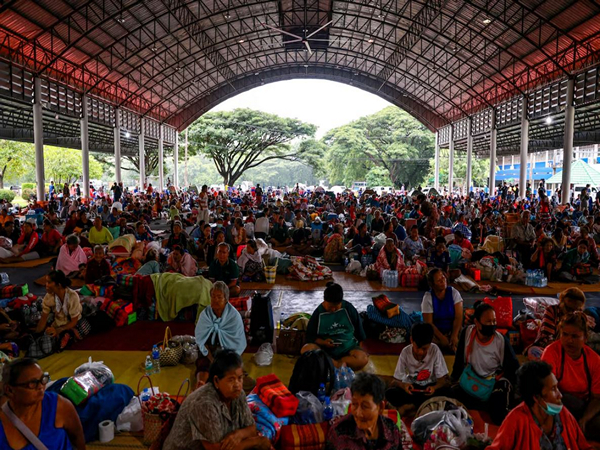Uyghur-American politician criticises China's strategic alliance with Islamist parties
Sep 03, 2024

Washington DC [United States], September 3 : The Foreign Affairs and Security Minister of the East Turkistan Government-in-Exile, Salih Hudayar, accused China of strategically aligning with Islamist political parties to use them as tools against China's adversaries.
In a post on X, Salih stated, "China has strategically courted Islamist political parties, using them as proxies to fight China's enemies and simultaneously whitewash China's campaign of colonization, genocide, and occupation of East Turkistan."
Hudayar argued that by aligning with atheist Chinese communists, Islamist parties have betrayed the Uyghur and other Turkic Muslims while also undermining their own religious principles. He stated, "By aligning with atheist Chinese communists, the Islamists have sold not only the Uyghur and other Turkic Muslims but also the Islamic faith.
The stark reality is this: atheist China has become the greatest backer of Islamists, and these Islamists, in turn, have become the staunchest allies of the genocidal atheist regime that stands against everything they claim to believe in."
https://x.com/SalihHudayar/status/1830792214819283173?t=b_VJZJudfKgyCgFyExVMuw&s=08
Hudayar's comments followed a meeting between the Chinese Ambassador to Dhaka, Yao Wen, and Shafiqur Rahman, the Ameer of the Bangladesh Jamaat-e-Islami party, at the Jamaat's central office in Moghbazar, Dhaka.
According to reports, Yao Wen also conveyed his appreciation for the hospitality extended by Jamaat-e-Islami, stating, "Jamaat-e-Islami is a disciplined party."
During the 1971 war, Jamaat-e-Islami supported West Pakistani soldiers who were responsible for the mass killing of Bengalis before their eventual surrender to India. Under Sheikh Hasina's administration, many Jamaat leaders were either sentenced to death or handed long prison sentences for their involvement in these war crimes.
The alliance between China and certain Islamist parties, such as Jamaat-e-Islami, is a complex and somewhat paradoxical development, especially given the stark contrast between China's treatment of Uyghur Muslims and the ideological stance of these parties.
China has always faced international criticism for its repressive policies towards the Uyghur Muslim population in Xinjiang, which includes allegations of human rights abuses, surveillance, and forced assimilation.
Meanwhile, some Islamist parties, which traditionally champion the cause of Muslim communities, seem to overlook these issues in favour of strategic or political alliances with China.
For instance, Jamaat-e-Islami Bangladesh, like many other Islamist parties, has been notably reticent about the plight of the Uyghur Muslims in China. While the party often advocates for Muslim causes globally, including issues in Palestine, its stance on the Uyghurs has been relatively subdued.



















